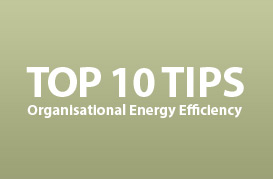Jan
Further to Torse’s recent efforts to elicit from Chris Huhne (UK Energy Secretary) the government’s strategy to wrest control of UK Energy supply from oligopolistic suppliers; out rolled the stock response of a current review and paraphrased abstract from Ofgem’s remit relating to protecting consumers and ensuring proper competition and wholesale power liquidity.
- Bookmark :
- Digg
- del.icio.us
- Stumbleupon
- Redit it
Chris Huhne, UK Energy Secretary, has recently taken some time for a Q&A session in today’s Financial Times. When we at Torse found out about this arrangement, we jumped at the chance to ask the Coalition Governments energy expert a question or two, here’s how it went:
- Bookmark :
- Digg
- del.icio.us
- Stumbleupon
- Redit it
Dec
The following Top Tips Guide provides recommendations to significantly reduce energy consumption in your organisation. By reducing your dependence on energy, you can cut costs, improve reputation, and stay one step ahead of environmental compliance.
- Bookmark :
- Digg
- del.icio.us
- Stumbleupon
- Redit it
Dec
 The London School of Economics recently published whitepaper, Energy Risk Management for UK Business, concludes that the risks associated with business energy will continue to grow over the coming years.
The London School of Economics recently published whitepaper, Energy Risk Management for UK Business, concludes that the risks associated with business energy will continue to grow over the coming years.
The report continues that the increase in financial, legislative and reputational risks associated with business energy mean that within today modern and often complex environment, organisations need to put into place strategies to reduce their exposure to potential risks.
- Bookmark :
- Digg
- del.icio.us
- Stumbleupon
- Redit it
Nov

At present the Environment Agency is slowly but surely trying to understand exactly how many people should have registered for the CRC Energy Efficiency Scheme, whether it be as full participants or simple information disclosures. With 3,100 confirmed full participants against a pre-estimated 5,000, at the moment no one’s quite sure of the total numbers.
- Bookmark :
- Digg
- del.icio.us
- Stumbleupon
- Redit it
Nov
 In line with the UK Governments spending cuts, DEFRA has announced significant cuts and structural reform to its largest non‐quango body, The Environment Agency. DEFRA believes radical reform is required in order to make the Environment Agency leaner with greater levels of efficiency, whilst it also provides an end to any potential policy‐making and lobbying activities. MORE ABOUT THE DOWNSIZING EFFECT
In line with the UK Governments spending cuts, DEFRA has announced significant cuts and structural reform to its largest non‐quango body, The Environment Agency. DEFRA believes radical reform is required in order to make the Environment Agency leaner with greater levels of efficiency, whilst it also provides an end to any potential policy‐making and lobbying activities. MORE ABOUT THE DOWNSIZING EFFECT
- Bookmark :
- Digg
- del.icio.us
- Stumbleupon
- Redit it
Nov

The ongoing recessionary influences such as fundamental cuts in government spending are patently beginning to bother the speculative scavengers – and by scavengers we are of course referring to those companies or organisations influencing wholesale energy prices. OPEC is intimating that it would be quite nice if everyone paid $10.00 more a barrel to make them feel more financially comfortable, unsuprisingly this was pounced on by the market with new highs.
- Bookmark :
- Digg
- del.icio.us
- Stumbleupon
- Redit it







